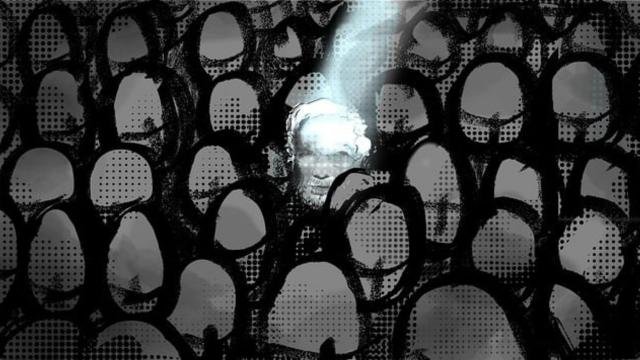Julian Assange, the founder of WikiLeaks, a controversial website known for publishing classified information, recently walked free from prison after a lengthy legal battle. This development marks a significant chapter in the ongoing debate about freedom of speech, national security, and the role of whistleblowers in the digital age. Let’s delve into the details of Assange’s case, explore the classified US data he released, and analyze the implications of his release.
Julian Assange: A Figure of Controversy
Assange rose to prominence in 2010 when WikiLeaks published a trove of classified US military and diplomatic documents, including the “Afghan War Logs” and “Iraq War Logs,” exposing alleged war crimes and civilian casualties. These leaks sparked international outrage and ignited a fierce debate about transparency and accountability in government.
The Classified US Data: A Pandora’s Box of Information
The classified US data published by WikiLeaks included:
- Afghan War Logs: These documents contained details of civilian casualties, detainee abuse, and internal military assessments of the war in Afghanistan.
- Iraq War Logs: Similar to the Afghan War Logs, these documents revealed previously unknown details about the war in Iraq, including civilian deaths and the use of torture by US forces.
- Diplomatic Cables: WikiLeaks released a massive cache of diplomatic cables from US embassies worldwide, exposing candid assessments of foreign leaders and potentially jeopardizing international relations.
The Legal Labyrinth: Assange’s Long Road to Freedom
Assange’s legal troubles began shortly after the WikiLeaks releases. He faced accusations of espionage from the US and Sweden, leading to a years-long saga of legal battles, asylum requests, and political tension:
- Swedish Sexual Assault Allegations: Sweden issued an arrest warrant for Assange on sexual assault allegations, which he has denied. This triggered a lengthy asylum battle with Ecuador, where Assange resided in their London embassy for seven years.
- US Espionage Charges: The US sought Assange’s extradition to face charges under the Espionage Act related to the WikiLeaks publications. This move raised concerns about press freedom and the potential criminalization of publishing classified information.
- Arrest and Legal Battles: In 2019, Assange was arrested by British authorities and held at Belmarsh Prison in London while fighting extradition to both Sweden and the US. His health deteriorated significantly during his time in prison.
Assange’s Release: A New Chapter, Unanswered Questions
In 2024, Assange secured a plea deal with the US, pleading guilty to a single count of conspiracy to obtain and disclose classified information. This deal avoided the possibility of a lengthy trial and potential life sentence under the Espionage Act. Assange was released from prison and returned to his native Australia.
10 Recommendations to Address Leaks and Protect Sensitive Information
The Assange case highlights the complex challenges associated with classified information leaks. Here are 10 recommendations for navigating this issue:
- Improved Classification Standards: Review and refine classification policies to ensure only genuinely sensitive information receives high-level classification.
- Whistleblower Protections: Strengthening whistleblower protection programs encourages responsible disclosure of wrongdoing while safeguarding individuals from retaliation.
- Cybersecurity Measures: Invest in robust cybersecurity measures to minimize the risk of unauthorized access to classified information.
- Transparency and Accountability: Governments should strive for greater transparency within reasonable boundaries to promote public trust and address misinformation.
- International Collaboration: Developing international frameworks for dealing with leaks can help mitigate damage and ensure a coordinated response.
- Media Literacy Education: Emphasize media literacy education, empowering citizens to critically evaluate information and identify potential bias or misinformation.
- Focus on Declassification: Implement a more efficient declassification process to expedite the release of non-sensitive information in a timely manner.
- Dialogue Between Media and Government: Open dialogue between media outlets and government agencies can foster a more responsible approach to handling sensitive information.
- Prioritizing Freedom of the Press: Finding a balance between national security and freedom of the press is crucial, protecting legitimate journalism while safeguarding truly sensitive information.
- Upholding the Rule of Law: Ensuring fair and impartial legal processes upholds the rule of law and prevents the weaponization of the legal system against whistleblowers and journalists.
Conclusion: A Balancing Act in the Digital Age
The Assange case is a reminder of the constant tension between transparency and security in the digital age. Finding the right balance requires robust cybersecurity measures, improved whistleblower protection, and a commitment to freedom of the press. It also necessitates fostering public trust and open dialogue between media and government.
While Assange’s release might be seen as a victory for press freedom, the case is far from over. The underlying issues of classified information leaks, whistleblower rights, and the role of media in the digital age remain a subject of ongoing debate. Here are some lingering questions:
- Will the US Espionage Act charges be dropped entirely? The plea deal averted a full trial, but the possibility of future legal action from the US remains.
- What are the long-term implications for whistleblowers and investigative journalism? Will Assange’s case become a precedent for deterring future leaks?
- How can we ensure responsible disclosure of classified information without compromising national security? Striking a balance between transparency and security is a continuous challenge.
The Assange saga serves as a cautionary tale and a call to action. As we navigate the complexities of the digital age, it’s crucial to develop robust safeguards against information leaks while upholding the principles of freedom of speech and press. By fostering open dialogue, prioritizing responsible journalism, and implementing effective whistleblower protection mechanisms, we can create a more informed and secure digital environment for all.


